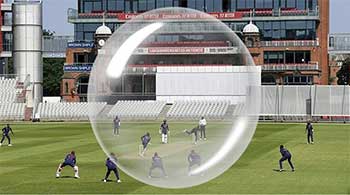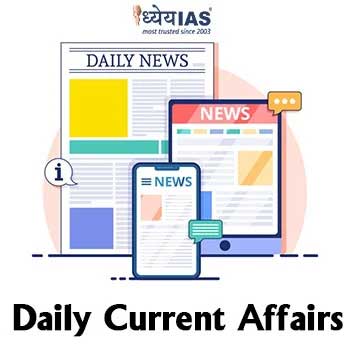International Literacy Day 2020
Why in NEWS?
- Ministry of Education celebrates 54th International Literacy Day (ILD) Celebration-2020 on September 08th 2020.

About
- Shri Ramesh Pokhriyal 'Nishank',education minister informed that this year’s International Literacy Day 2020 focuses on ‘Literacy teaching and Learning in the COVID-19 crisis and beyond’ especially on the role of educators and changing pedagogies.
- The theme highlights literacy learning in a lifelong learning perspective, and therefore, it mainly focuses on youths and adults.
- ILD, 2020 provides an opportunity to reflect on and discuss how innovative and effective pedagogies and teaching methodologies can be used in youth and adult literacy programmes to face the pandemic and beyond.
- Ministry of Education has made efforts for eradication of illiteracy in the country over the years resulting in achieving substantial progress towards improving access to adult education and learning but still India has a sizeable number of illiterates which have to be literate in attaining a target of achieving 100% literacy before the target year 2030.
International Literacy Day (ILD)
- It is celebrated on 8th September every year all over the world.
- The celebration of ILD started following a recommendation of the World Conference of Ministers of Education on the Eradication of Illiteracy which met in Tehran in September 1965.
- The Conference recommended that 8th September, the date of the inauguration of the Conference, be proclaimed International Literacy Day and be observed world- wide.
- UNESCO in 14th Session of its General Conference held in Paris in November 1966, formally proclaimed 8th September as International Literacy Day.
- Since then, UNESCO has celebrated International Literacy Day with the aim to sensitize and mobilize international public opinion and to elicit their interest and active support for literacy activities – one of UNESCO’s major pre-occupations.
- In India, literacy and particularly Adult literacy has been a national priority since independence.
- With a view to eradicate illiteracy and impart functional literacy and lifelong education to adult education, National Literacy Mission was launched by Government of India in 1988.
- Since then, India has been celebrating International Literacy Day on 8th September to reaffirm its national commitment to achieve goal and objectives of literacy and express solidarity with international community in its efforts to eradicate illiteracy.
NSO Report Shows Stark Digital Divide Affects Education
IN NEWS
- A recent report on the latest National Statistical Organisation (NSO) survey shows just how stark is the digital divide across States, cities and villages, and income groups.
KET OUTCOMES
- The survey on household social consumption related to education was part of the NSO’s 75th round, conducted from July 2017 to June 2018. The final report was released recently.
- Across India, only one in ten households have a computer — whether a desktop, laptop or tablet. However, almost a quarter of all homes have Internet facilities, accessed via a fixed or mobile network using any device, including smartphones.
- Most of these Internet-enabled homes are located in cities, where 42% have Internet access. In rural India, however, only 15% are connected to the internet.
- The national capital has the highest Internet access, with 55% of homes having such facilities. Himachal Pradesh and Kerala are the only other States where more than half of all households have Internet. At the other end of the spectrum is Odisha, where only one in ten homes have Internet.
- There are ten other States with less than 20% Internet penetration, including States with software hubs such as Karnataka and Tamil Nadu.
- The biggest divide is by economic status, which the NSO marks by dividing the population into five equal groups, or quintiles, based on their usual monthly per capita expenditure.
- Kerala shows the least inequality: more than 39% of the poorest rural homes have Internet, in comparison to 67% of the richest urban homes.
CONCERNS
- Even as digital literacy is likely to grow during this pandemic, concerns remain about basic literacy, with September 8 celebrated as International Literacy Day.
- More than one in five Indians above 7 years still cannot read and write in any language. Over the last decade, literacy rates have increased from 71.7% to 77.7%, with the highest gains coming among rural women.
- A State-wise split of literacy rates also throws up some unexpected results. Andhra Pradesh has the country’s lowest literacy rate, at just 66.4%, significantly lower than less developed States such as Chhattisgarh (77.3%), Jharkhand (74.3%), Uttar Pradesh (73%), and Bihar (70.9%). Kerala remains at the top of the pile with 96.2% literacy, followed by three northern States: Delhi (88.7%), Uttarakhand (87.6%) and Himachal Pradesh (86.6%).
Bio-Bubble
Why in NEWS?
- Every IPL match will be encapsulated in a bio-bubble; bio-bubble is the invisible shield, the new pandemic-era protocol where everyone associated with a sporting event goes into a little cocoon away from the outside world.
About
- Teams and staff stay put in hotels locked off entirely for them and are ferried to and from practice games and matches; only people inside the bubble are allowed into the sporting venues.
- The Indian Premier League (IPL) in UAE on September 19 and the Indian Super League (ISL) football championship in Goa from October 2020 till March 2021, will be played inside the bubble.

Minimise Risks
- A safe and secure environment that is isolated from the outside world to minimise the risk of COVID-19 infection, a bio-bubble permits only authorised sports persons, support staff and match officials to enter the protected area after testing negative for COVID-19. Naturally, individuals must be regularly tested, temperature checked with respective health reports filed accordingly.
- The bio-bubble does not just limit itself to the pitch or field; it is, of course, mandatory that all entities partake in this new form of quarantine.
- The Board of Control for Cricket in India (BCCI) will provide ‘bio secure bubbles’ in hotels, training sessions, matches and transportation.
- The IPL Governing Council has made it clear that wilful breach of bio-secure bubble will invite strict action as it can put all players at risk. Should a player disobey the code in IPL, he will be isolated and be asked to test negative twice before entering the bubble again.
Tech behind Bio-Bubble
- IPL’s secure bio-bubble has been created by a UK-based safety and technology firm, Restrata.
- Its software is COVID-19 regulations compliant, comprising a trio of tech we have seen mentioned on a quotidian basis: testing, contact tracing and Artificial Intelligence.
- During earlier series, Restrata had installed Bluetooth technology in stadiums to accurately track and trace any suspected COVID-19 outbreaks in real time. The company’s software helped organisers monitor people working in specific zones, and check whether they adhered to physical distancing and capacity limits norms. A similar technology is reported to be deployed for the IPL.
- Contact tracing is broken down into three stages: contact identification, contact listing and contact follow-up, and recent technologies leverage Bluetooth (with a six-foot detection range) and Artificial Intelligence to automate this continuous data collection and processing, so that monitoring is detailed, seamless and in real-time.
- Often, wearables or an accreditation card will carry a chip-enabled GPS device to provide Restrata, IPL authorities and franchises detailed and live capability to track and trace individuals at all times.









